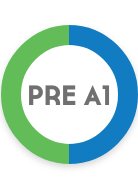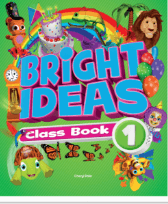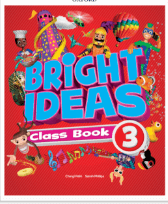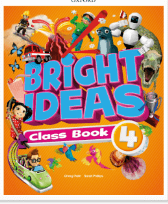
Corsi per bambini di 5–6 anni
I bambini a questa età sono come spugne: assorbono le informazioni molto rapidamente! I nostri corsi pre-primari sono progettati per essere divertenti, utilizzando un mix di attività per massimizzare il coinvolgimento e una didattica altamente espressiva.
Poniamo le basi della lingua inglese, concentrandoci sulla consapevolezza fonemica (apprendimento dei suoni) e sul riconoscimento delle lettere, esponendo gli studenti a un nuovo vocabolario e a situazioni comunicative. Per saperne di più sul programma dei corsi Meridian, sul piano di studi e sul calendario accademico, si veda qui di seguito.
Programma
I nuovi studenti di età compresa tra i 5 e i 6 anni possono iniziare le lezioni di Meridiano il lunedì o il martedì, a condizione di completare la registrazione entro 9. 0 am (UK) alla data di inizio scelta. Le date del corso includono giorni festivi e chiusure scolastiche.
Durante la prenotazione troverete le date del corso per i bambini dai 5 ai 6 anni. Di seguito è riportato un calendario del campione. Le regolazioni del tempo seguono la transizione da GMT a BST del Regno Unito. Ti avviseremo se questo influisce sulla classe di tuo figlio.
2 volte a settimana

3 volte a settimana

What your child will learn at each levels?

• È in grado di riconoscere numeri, prezzi e giorni della settimana, se pronunciati chiaramente e lentamente.
• È in grado di riconoscere parole familiari accompagnate da immagini, come ad esempio un libro illustrato, utilizzando un vocabolario familiare.
• Riesce a comporre brevi frasi su se stesso, fornendo informazioni personali di base.

• È in grado di comprendere e utilizzare espressioni familiari di uso quotidiano e frasi semplici.
• È in grado di presentare se stesso e gli altri e di fare e rispondere a domande su dettagli personali come il luogo in cui vive, le persone che conosce e le cose che possiede.
• Può interagire in modo semplice, a condizione che l’interlocutore parli lentamente e chiaramente e sia disposto ad aiutare.
Corso di contenuti primari 5–6 anni
 Unità 1–4
Unità 1–4
|
Course Title
ITE
duration
12 weeks
18–30 h |
Temi centrali | Vocabolario di base | Grammatica di base | Pronuncia di base |
|
• Hello |
• Classroom objects and |
• Say hello, introduce |
• Letters and phonics A-Z |
 Unità 1–4
Unità 1–4
|
Course Title
Pre-A1.1
duration
12 weeks
18–30 h |
Temi centrali | Vocabolario di base | Grammatica di base | Pronuncia di base |
|
• What do we like about school? |
• Classroom objects and |
• ‘It’s a…’ and ‘have got/ |
• Consonant sounds /r/ |
 Unità 5–8
Unità 5–8
|
Course Title
Pre-A1.2duration
12 weeks18–30 h |
Temi centrali | Vocabolario di base | Grammatica di base | Pronuncia di base |
|
• What do we eat? |
• Food |
• ‘What do you…?’ and |
• Consonant sounds /tʃ/ |
 Unità 1–4
Unità 1–4
|
Course Title
Pre-A1.3
duration
12 weeks
18–30 h |
Temi centrali | Vocabolario di base | Grammatica di base | Pronuncia di base |
|
• Why do we like |
• Possessions and
|
• Possessive adjectives |
• Consonant sounds /w/ |
 Unità 5–8
Unità 5–8
|
Course Title
Pre-A1.4
duration
12 weeks
18–30 h |
Temi centrali | Vocabolario di base | Grammatica di base | Pronuncia di base |
|
• Why are animals |
• Wild animals and things |
• Present simple |
• Pronounce the /h/ sound |
 Unità 1–4
Unità 1–4
|
Course Title
A1.1
duration
12 weeks
18– 30 h |
Temi centrali | Vocabolario di base | Grammatica di base | Pronuncia di base |
|
• How do we make friends? |
• Activities and prepositions of movement |
• Present continuous and imperatives |
• The sound /ei/ |
 Unità 5–8
Unità 5–8
|
Course Title
A1.2
duration
12 weeks
18–30 h |
Temi centrali | Vocabolario di base | Grammatica di base | Pronuncia di base |
|
• How do we make friends? |
• Beach activities and |
• Questions with ‘Want to’ |
• Vowel sounds /ɔː/ (walks) |
 Unità 1–4
Unità 1–4
|
Course Title
A1.3
duration
12 weeks
18–30 h |
Temi centrali | Vocabolario di base | Grammatica di base | Pronuncia di base |
|
• What’s exciting about |
• Camping activities and |
• Past simple irregular |
• Vowel sounds /ɜː/ (third) |
 Unità 5–8
Unità 5–8
|
Course Title
A1.4
duration
12 weeks
18–30 h |
Temi centrali | Vocabolario di base | Grammatica di base | Pronuncia di base |
|
• What’s great about a zoo? |
• Zoo animals and Zoo keeper jobs |
• ‘going to + affirmative, |
• The /aʊ/ sound |







